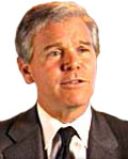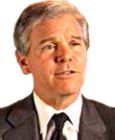ADHD
The Swimming Cure for ADHD?
Will swimming be the new cure for ADHD?
Posted August 18, 2008 Reviewed by Davia Sills
Michael Phelps’s amazing Olympic triumph belies the notion of a chronic disorder
In the next few days, you are certain to read more about Michael Phelps’s childhood, including his being diagnosed with ADHD and treated with medication at age 9 for two years. A front-page New York Times piece on Michael today suggested the diagnosis when his third-grade teacher, Mrs. Kines, was quoted in a recent letter to his mother, Debbie, as recalling Michael having “immense difficulties concentrating and sitting still,” leading Mrs. Kines to wonder “if he would ever be able to focus on anything.”
A quick Google search revealed a July 22nd local Baltimore TV news piece interviewing Debbie about Michael’s ADHD and a Facebook essay by Debbie about the same subject. Apparently, Michael was a very good athlete, talented in a number of sports growing up (no surprise—most athletic superstars have similar multi-sport histories, e.g., Roger Federer and soccer). But he was also quite hyper and not a particularly good student. So, at age 9, he was taken to his doctor, given an ADHD diagnosis, and started on medication, which Debbie only gave him on school days, because his weekends and vacations were filled with sports in which he excelled.
By age 11, he had committed himself only to swimming, which Debbie believes was particularly helpful, because it was especially structured and highly regimented, given his increasingly intense training. Swimming even for a team is also relatively individualistic. From my years of experience treating children with ADHD, I know that they do better with individual-oriented sports, like swimming or track (even tennis), compared to team sports, like baseball (that’s death for an ADHD with all the waiting around in the outfield) or even soccer.
At that point, he no longer needed medication for school. My guess is that he had matured significantly or was so excelling at sports so as to feel more comfortable even at school. Debbie feels that Michael, as an adult, still has some aspects of ADHD. She feels his thoughts at times may still jump around some—apparently, though, not enough for a national media catering to America’s sound byte short attention span to notice.
Still, Michael’s story and success are revealing about the ADHD diagnosis and prognosis in children’s mental disorders these days. I’ve said many times; it doesn’t take much in terms of underperformance or misbehavior these days for worried and loving middle/upper-middle-class parents to take their children to a doctor to at least rule out ADHD. Besides giving parents an illusion of security in a name, the diagnosis opens the door for school accommodations and services.
Stimulant treatment (Ritalin, Adderall, Concerta, etc.) improves everyone’s performance on boring and repetitive tasks, so improvement on medication doesn’t necessarily confirm a diagnosis of ADHD, but will definitely increase focus and grades in the short term—especially if there are minor learning difficulties (I strongly suspect Michael’s strengths weren’t in academics in his early years).
Michael’s success cannot be fully explained by his athletic prowess alone. His drive must also be incredible, and those qualities of personality—persistence and intensity—can be highly problematic in the childhood years when a child’s interests and strengths are not academic. Things change dramatically once a child finds his/her niche, which often doesn’t occur until late high school or beyond.
Michael was lucky in that he was so talented physically that he was already on the path to success at age 11 (which is when he no longer needed the drugs). It is just as well since stimulants are banned on the international competitive level in all sports. Not so surprisingly, in America, where ADHD is more openly accepted, the NCAA and major league baseball will allow an amphetamine-positive athlete to compete if he has a doctor’s note confirming ADHD.
Phelps’s ADHD story is otherwise important for two reasons. First, it calls into question whether we should really be labeling a child like Michael with a mental disorder. One could hardly call him impaired at this time of his life. Yet academics regularly pronounce that ADHD is a life-long disorder. Indeed, perhaps the outcome for the well-screened, highly-impaired, university-selected children with ADHD is more guarded. But for the garden variety, front-line Tom Sawyers, Pippi Longstockings, and now Michael Phelps that make up my and most doctors’ practices, the future is much brighter (once they find their niche).
And that leads to the second point—that children with strong persistence and drive who are not academically oriented—who hyperfocus on things they like, but not necessarily what their parents and teachers want—have the potential to do great things. Mrs. Kines, in her letter to Michael’s mother, continued on about how proud she was of Michael, writing, “it had never been focus he lacked, but rather a goal worthy of his focus.”
So if diagnosis and medication got Michael and other children like him through a tough time (when their personality and talent peg has to fit into a particularly rigid hole, e.g., school), then so be it. But one thing I know for sure—for the immediate future, swimming will be the “treatment of choice” for that hard to fit, slightly hyper, poorly focused kind of kid.




